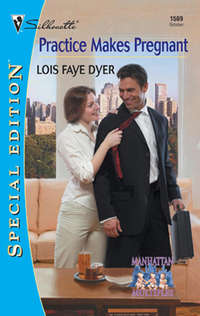
Полная версия
Cattleman's Heart
“I was just making a mug of tea, Mr., um, Hank. Would you like one?”
He gave her a withering glare. “No. Don’t drink tea. That’s a woman’s drink, ’cept for iced tea loaded with sugar in the summertime.”
“Oh.” Rebecca bit the inside of her lip to keep from grinning. Hank reminded her of elderly Mr. Althorpe, her neighbor at her condo in San Francisco. He proclaimed long and loud that he hated women, but he was a soft touch for the double-chocolate brownies she brought him from the bakery on the next block. She wondered briefly if the bakery would give her the recipe so she could try chocolate bribery on Hank.
“Men drink coffee, beer or whiskey,” the old man proclaimed, stomping to the sink. He scrubbed his hands and face, drying them on the towel hung on a rack inside the lower cabinet door.
“Would you like me to make you coffee, then?”
“No.” He shot her a scathing glance. “Women never make it strong enough.”
“Ah, I see.” She collected her tea, tossed the tea bag in the trash, stirred in sugar and retreated to the relative safety of the table.
“If you’re gonna be livin’ here, you’re gonna have to help with chores,” Hank warned.
“Certainly. Is there a schedule?”
“Of sorts. I do most of the cookin’ and everybody else helps out with cleanin’ up in the kitchen and the rest of the house.”
Rebecca didn’t miss the pointed look Hank gave her. Clearly, the kitchen was Hank’s territory.
“Can I help you with dinner tonight?” she offered, expecting him to refuse. To her surprise, he didn’t.
“Since I’m runnin’ late tonight, I suppose you can,” he agreed grumpily.
“What can I do?” She stood.
“You can get five good-sized baking potatoes from the sack in the basement. The door to the cellar is on the back porch.”
“Right.” Rebecca stepped into the utility room. A washer and dryer took up half of one wall, the other half lined with coat hooks and a collection of jackets. Below them, several pairs of rubber or leather boots stood. The far wall had more hooks for jackets and the door to the back step, standing open with the screen door outside closed. To her left, cabinets lined the wall on each side of a door. She pulled open the door, flicked on the switch and carefully descended steep stairs to the cool, concrete-walled basement. Rough plank shelves lined the walls, filled with enough canned goods to feed an army. She found the gunny sack of potatoes leaning against the wall. Juggling an armful, she left the basement for the kitchen and crossed to the sink. Hank shot her a glance when she tumbled the pile into the sink and began to wash them. Without commenting, she scrubbed them clean, deftly stabbed each three times with a knife from the block atop the counter and slipped them into the oven, setting the temperature at four hundred.
“Potatoes are in,” she told Hank. “What else can I do?”
When Jackson opened the back door and stepped into the utility room off the kitchen, it was nearly six-thirty. He was hot, dirty and tired. And he still hadn’t decided what he was going to do about Rebecca Wallingford.
He saw her through the screen door to the kitchen the minute he stepped into the utility room. She was standing with her back to him, stirring something in a pan on the stove. Gone was the sophisticated black business suit and heels, replaced by a gathered white skirt that cinched in at her narrow waist and left the smooth, tanned length of legs bare from above her knees. The old radio on the shelf by the back door was tuned to a rock-and-roll station, and her ebony ponytail swung back and forth, brushing her nape as she swayed to the music.
Emotions, basic and primitive, stirred in Jackson. He easily recognized the surge of lust in the mix. Rebecca Wallingford was a beautiful woman; he’d have to be a eunuch not to respond to her. The other reactions were more difficult to analyze. He suspected that it had something to do with coming in from work and finding a beautiful woman cooking dinner in his kitchen. The inferences to hearth and home and a woman of his own were obvious.
Oh, no. I’m not going there.
He stepped inside the kitchen and turned down the volume on the radio. Rebecca spun around, her hand flying to her heart.
“Oh, it’s you. You startled me.”
“Sorry.” For a long moment, he couldn’t look away from wide emerald eyes fringed with thick black lashes. She had a mouth that conjured up erotic fantasies, and the green tank top clung to full breasts that the suit jacket she’d worn earlier had concealed. He realized that he was staring and yanked his gaze away from her chest to glance past her at the stove. “Where’s Hank?”
“He went to the basement to find canned peaches for dessert.”
Behind Jackson, the sound of male voices and laughter grew louder. The back-room door slapped shut, then the inner screen door opened and two men stepped into the kitchen. They halted abruptly just inside the door and stared at Rebecca with identical expressions of surprise and interest.
“Whoa. Who’s this?”
The taller of the two grinned at her, his blue eyes alive with interest on an open, friendly face beneath close-cropped blond hair. The other man was shorter, with dark brown hair and a handsome face. Rebecca instinctively liked the taller man and withheld judgment on the handsome one.
She glanced at Jackson and found him watching her reaction, eyes narrowed.
“This is the accountant. She’ll be staying here for the next couple of months or so. Rebecca Wallingford,” he nodded at the blond man, “this is Gib Thompson…”
“Hello.” The lanky young man grinned and nodded a greeting.
“…and Mick Haworth.”
“Pleased to meet you.” An engaging smile wreathed Mick’s handsome face.
“It’s nice to meet you, too.”
“Where are you from, Rebecca?” Gib asked.
“San Francisco.”
“Yeah? Are you…”
“Out of the way.” Hank’s testy voice interrupted them. He elbowed his way past Mick and Gib and shot them a glare. “If you two want to eat tonight, you’d better get washed up. I ain’t waitin’ dinner on you while you stand here jawin’ with Rebecca.”
The two shot Rebecca apologetic looks and left the room. Their boots sounded on the stairs, the din of their friendly arguing floating behind them down the stairway.
“You, too, boss.”
Jackson left the kitchen without comment. The radio played an old Stones tune as his boots sounded on the stair treads.
By the time Jackson and the other two came back downstairs, faces, hands and arms washed free of dust and grime, Rebecca was folding napkins and tucking them under silverware. The maple table was set with mismatched china, a crockery bowl filled with salad greens and red tomatoes making a bright spot of color against the wooden tabletop. Hank forked steaks onto a platter and set it on the table.
“Well, come on, set down and eat before everything gets cold.”
Chairs scraped against the wooden floor, Mick and Gib jostling each other to pull out Rebecca’s chair. Jackson gave them a steely glare and they retreated to their own seats. Rebecca calmly seated herself and picked up her napkin.
For a few moments, the silence was punctuated only by requests to pass food and the scrape of spoons and forks against bowls and plates.
The quiet was broken by Gib.
“So, Rebecca, you’re an accountant? In San Francisco?”
“Yes.” She picked up her water glass and sipped. “I work for an investment firm downtown.”
“And you do this often?” Mick asked.
Rebecca glanced up. “Do I do what often?”
“Travel to a strange place and live with strangers?”
“I travel a lot,” she conceded. “But I usually stay in a hotel room by myself.”
“And that doesn’t bother you, traveling all the time?” Gib asked, his voice curious.
“No, not at all. I like visiting new places, meeting new people.”
“And you don’t miss being at home?”
Rebecca had a quick mental image of her San Francisco apartment with its few pieces of furniture and the unpacked boxes still shoved into closets after three years. Her busy traveling life left little time to build a nest. “I miss San Francisco,” she admitted. “I love the city. But I rarely get homesick when I’m away. I’m usually too busy working and exploring a new city.”
“So most of your jobs are in the city?” Mick asked, ignoring his half-eaten steak to stare at her.
“Until now, all of my clients have been located in medium to large cities. But that doesn’t mean that our firm never has clients in smaller towns.”
“But you’ve never worked in a small town,” Jackson interjected.
“No,” Rebecca admitted. She lifted an eyebrow, trying to keep annoyance from her voice. “Are you concerned about my ability to deal with a rural-based business rather than an urban corporation?”
“No.” He shook his head. “I’m concerned with your ability to put up with the isolation of a ranch after living in the city.”
“I have a car,” she pointed out. “And Colson isn’t that far away.”
“True. But Colson isn’t San Francisco, not even close. You’re a long way from gourmet restaurants, Starbucks coffee and the opera.”
“I don’t go to the opera.”
He shrugged. “Then, the ballet. Whatever it is that you like to do in the city, you’re not likely to find here.”
“Maybe not.” She narrowed her eyes, determined to squelch the urge to lose her temper. “But I’m sure there are other things unique to the area and unavailable in the city that I’ll find here.”
He looked unconvinced. “I’m sure there are, but I doubt you’ll like any of them.”
Rebecca forced a small smile. “I have no doubt I’ll find them fascinating. In any event, I won’t be here forever. Two or three months is longer than my usual assignments but the time will pass quickly enough.”
“You don’t usually stay at a company for three months? Why so long this time?”
His question seemed casual, but Rebecca didn’t miss the intensity with which he watched her.
“I don’t know.” She was suddenly aware that everyone at the table had stopped eating, their attention wholly focused on her. She chose her words carefully. “As far as I know, this is the first time Bay Area Investments has made a loan to a rancher. Perhaps the company is being cautious because this is a trial project in a new area.”
“Maybe.” Jackson was unconvinced. Gut instinct told him that she was holding something back. She sipped water, and her gaze met his without evasion over the rim of the glass. He didn’t think she was lying, but doubted she was telling him everything she knew.
Rebecca glanced around the table. “This steak is excellent,” she said politely, changing the subject without worrying about subtlety. “Is it from beef raised here on the ranch?”
Hank hooted. Jackson’s mouth twisted with wry humor.
“I wish I could say yes. The few cattle left on the place when I took over were wild and tough as raw-hide.” He gestured at the steak on her plate. “This came from a neighbor. I traded him a side of beef for some repair work I did on his barn roof.”
“So you don’t raise beef? I thought I read in the report that you raised cattle?”
“I raise purebred bulls for breeding. A bull-breeding operation can be very profitable, if done right, but the start-up costs are prohibitive because of the high price of investing in good stock.”
“Ah. I see.” Rebecca sipped her ice water and thought about his words. “So the initial investment is high, but the return is equally high?”
“It can be. If you’re lucky. And careful.”
“I understand that caution is important to any business, but how is being lucky important for profit in breeding bulls?”
“Because there are a hundred problems that can keep a bull from being able to reproduce—if the owner is unlucky enough to have a sick bull, the profit is zero.”
“I see.” Jackson’s comments brought home to Rebecca the inherent risk of investing in a business based on living animals. Once again, she wondered why her mother had gambled company money on the Rand Ranch.
“And a purebred bull can be downright touchy about procreatin’,” Hank interjected. “No matter what the BSE report says, he might have problems.”
“What’s a BSE report?” Rebecca inquired, curious.
“It stands for Breeding Soundness Examination and it’s an exam by a vet to verify that the animal is healthy,” Jackson explained.
“Oh.” Rebecca wasn’t sure just how much information she wanted him to explain to her about the breeding problems of bulls.
Jackson pushed back his chair and stood, gathering up his plate and utensils.
“When you’re done eating, I’ll show you the computer and the books.”
“I’m finished.” She stood, too, and carried her plate and utensils to the sink.
“It’s Gib and Mick’s night to wash the dishes.” Jackson took them from her. “You helped cook dinner, they’ll clean.”
“All right.” Not about to argue, Rebecca tucked a strand of hair that had escaped from her ponytail holder back behind her ear. “If you’ll show me where the office is, I’ll be glad to get acquainted with the computer and your bookkeeping system.”
“It’s down the hall, first door on the left.”
He stood back, waiting for her to precede him, and Rebecca nodded to the others and left the room.
The office was tucked between the kitchen and the stairway; Jackson pushed the door open and stood back to let Rebecca enter. Twice the size of her bedroom, the office had two tall sashed windows without curtains, white-painted walls, an old-fashioned oak desk and a bulky leather-covered sofa and chair. She took several steps into the room and paused, diverted by the large map that took up much of the wall behind the desk. A rough wood frame edged the glass that covered the yellowed hand-drawn map. The county was divided into ranches, heavy black lines marking the boundaries, while Colson and other towns were inked in with a lighter hand and set apart with a lopsided star.
The door clicked shut and Jackson halted beside her, his gaze following hers to the map.
“I think old Eli’s grandfather drew that,” he commented. “He was a surveyor for the U.S. government before he came west and homesteaded this place.”
“Fascinating,” Rebecca murmured. “He would have been your great-great-grandfather?”
“Something like that.” Jackson shrugged. “Eli was my great-uncle, but I’m not sure exactly how the family tree shakes out.”
“Did you grow up here?” Her gaze found his name printed in neat black ink beneath the faded letters spelling out “Eli Kuhlman.” The expanse of land that surrounded the names appeared enormous.
“Hell, no,” Jackson said shortly. “I never knew about Eli or this ranch until I got a letter from an attorney telling me that he’d died and left it to me.”
“Oh.” She wanted to ask him why he hadn’t known that he had a great-uncle who owned an enormous property. She glanced sideways at him. His attention was focused on the big map, his eyes narrowed, the lines of his face taut and forbidding. Despite her curiosity, caution kept her from questioning him further.
His gaze left the map and met hers for a brief second before he looked away.
“The computer is new,” he said abruptly, gesturing toward the desk where several unopened boxes were stacked on the floor, the top one even with the desktop. “I haven’t unpacked it yet.”
He walked to the desk and Rebecca followed, noting that the brand name stamped on the boxes was a computer she particularly favored. Jackson pulled out the old-fashioned desk chair, the oiled casters rolling quietly over the scarred wooden floor.
“Have a seat.”
It was more an order than a polite invitation but Rebecca didn’t comment. Instead, she seated herself in the worn, brown leather chair while Jackson snagged a straight-backed oaken chair and dragged it nearer the desk. His scent surrounded her, an indefinable mix of soap and male. Awareness shivered up her spine, lifting the fine hairs at her nape.
“These are the ledgers for the last thirty years.” Jackson reached across the desk and picked up a stack of books, setting them squarely on the bare oak desktop in front of Rebecca. The hardcover green ledgers, worn from use and faded with age, had entries in a spidery, often illegible hand.
For the next hour, Jackson explained the handwritten bookkeeping system that the previous owner, Eli Kuhlman, had used. Reading the notes soon had Rebecca’s eyes aching from strain.
The greatest strain, however, came from being in such close proximity to Jackson. He straddled the chair, his forearms crossed along the square wooden back. On one occasion, he stood and leaned over her at the desk, pointing out and explaining an item in a ledger, his arm twice brushing against hers. Waiting for him to touch her again had her nerves strung taut until she wanted to scream with tension.
By the time Jackson left to make a last check of the barns and she climbed the stairs to bed, her nerves were jangling.
Chapter Two
J ackson stacked his hands beneath his head and stared up at the ceiling. Outside the bedroom window, one of the maples’ far-reaching branches scratched gently against the glass pane. The three-quarter moon threw leaf-shaped shadows across the white ceiling, the dark shapes shifting and changing with the faint breeze.
He still didn’t know what he was going to do about Rebecca Wallingford.
She represented a complication that he didn’t have time to deal with. He was up to his neck in work, putting in fourteen-hour days to finish upgrading the ranch’s buildings and fences. He hadn’t been too wild about the idea of having a representative of the investment company underfoot, but the unexpected offer of financing from the San Francisco firm had arrived after he’d been turned down by every bank within a five-hundred-mile radius of Colson. Eli Kuhlman had left him land worth millions but no cash assets, and the fences, buildings and machinery were all desperately in need of repair. He’d reached the point where he would have done anything short of a criminal act to get the money to develop the ranch. When he was told that the accountant would be a fifty-three-year-old man named Walter Andersen, he’d resigned himself to squeezing one more boarder into the house for a few months. He’d hoped that Walter could at least play a decent game of poker.
Then Rebecca arrived. One look at her green eyes and curvy body had his temperature rising.
“Hell,” he muttered. Two or three long months. Maybe it was a good thing he had enough work to keep him busy twenty-four hours a day, if needed. Because there was no way he was acting on his instinct to ignore the engagement ring on her finger and pursue her. He had a hard-and-fast rule—never date anyone you work with—and he never broke it. Never. He’d been down that road and lived to regret it. He wasn’t going there again.
Rebecca had difficulty falling asleep. Accustomed as she was to the sounds of traffic and the occasional siren from the street below her sixth-story apartment windows in downtown San Francisco, the complete silence surrounding the ranch house was unsettling. But if it was strangely quiet outside, inside, Rebecca’s thoughts were uncharacteristically chaotic.
What was she going to do about the impact Jackson Rand had on her senses? Despite her earlier confidence that she could control her body’s reaction to the rancher, she hadn’t been able to shut down her response to him in the office. Would she become more adept at ignoring him with time? Or less so?
Thank goodness I never have to worry about any of this with Steven, she thought. Life with Steven would be comfortable and placid, with no disturbing wakes and whitecaps, no turbulent waters to threaten the calm comfort of their life together.
She woke the next morning to the sound of water running in the bathroom next door and the muted sounds of men’s voices, followed by the thud of boots on stair treads. Disoriented, she lay still, staring at the ceiling for a moment before she remembered where she was.
She turned her head and squinted at her small alarm clock on the night table.
Five o’clock? Her body was still on San Francisco Pacific time, where it was only 3:00 a.m. She groaned aloud and rolled over, pulling the sheet and blanket over her head.
The maneuver didn’t help. Fifteen minutes later, she shoved the covers back and glared at the clock. The luminous dial glowed silently back at her.
It’s no use. She admitted finally and tossed back the covers. Groping for her ankle-length robe at the end of the bed, she pulled it on over her pajamas, shoved her feet into matching white terry-cloth mules and took her toiletry bag from the top of the dresser. If she couldn’t sleep, she thought, she may as well get up, get dressed and get to work.
The hall was silent when she stepped out of her bedroom. In the vacant bathroom, damp towels hung over the racks, droplets of water dotted the sink and the faint scent of mint toothpaste hung in the warm air.
She splashed her face, brushed her teeth, ran a brush through her hair and caught it up into a high ponytail, then left the bathroom.
She moved quietly down the stairs, drawn by the irresistible smell of brewed coffee, and paused to listen intently at the bottom of the steps. The house was quiet. Breathing a sigh of relief that she had the house to herself, she walked down the hall and was two steps into the kitchen before she halted abruptly. Jackson was seated at the table, a coffee mug cradled in his hand.
“Good morning,” she managed, her voice husky with sleep.
“Good morning.”
His deep drawl curled her toes inside her slippers and made her feel much too vulnerable in her half-awake state.
Caffeine. I need caffeine.
She crossed the room to the counter, took down a mug and filled it, grimacing at the first strong, black sip.
“Something wrong with the coffee?”
She looked up. Jackson’s eyes held amusement.
“Not at all. It’s just that I usually drink tea in the morning and coffee later. Tea isn’t quite as strong as coffee.”
“The only kind of tea I ever drink is iced and loaded with sugar,” he commented.
Rebecca wondered if all Montana men felt this way about tea, since this was exactly what Hank had told her yesterday.
The growl of powerful truck engines sounded outside.
“The lumber delivery must be here.” He stood and pulled out a chair. “Have a seat.”
He walked toward the counter, passing Rebecca as she headed for the table.
“Make yourself at home. If you need anything today or have any questions about the books, I’ll be down at the barn. Or if it can wait, we usually break for lunch around noon.”
He filled a thermal mug with coffee, snapped the lid on and headed for the back door, pausing to look down at her as he passed the table. “You all right?”
“What? Oh, yes.” She yawned. “Really. I’m just not awake yet.” She added when he looked unconvinced.
“If you say so.” He shot her one last look and left the kitchen, the screen door slapping softly shut behind him.
Rebecca groaned and dropped her face into her hands.
I can barely think early in the morning, let alone deal with him.
All that sex appeal should come with a warning label, she thought, getting up to put the kettle on. Coffee just wasn’t a substitute for a strong cup of tea first thing in the morning.
Revived by hot tea and toast, Rebecca headed back up the stairs to shower and dress for the day in a lightweight white skirt, matching top and sandals. By seven o’clock, she was opening the office door, laptop and briefcase in hand.
Much to her surprise, she found the computer unpacked, the heavy monitor, CPU and keyboard sitting on the desktop, while the printer stood on a table placed at a right angle on the far side of the desk.
“Jackson must have unpacked it last night after I went to bed,” she mused.
Touched by his consideration, she took time to plug in her laptop to check her e-mail, then pulled out her cell phone. The phone didn’t respond with a dial tone, however, and she switched to the desktop phone. It took only a few moments to check her phone messages at her apartment, but much longer when she connected to her office voice mail. Her pen flew across the paper as she jotted down names, phone numbers and noted priorities, making a mental note to check her electronic daytimer before e-mailing her secretary with instructions.








